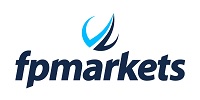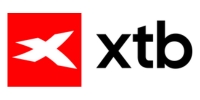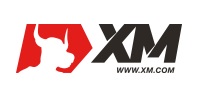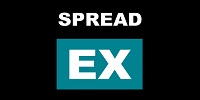Online CFD Broker Comparison – Australia
Broker
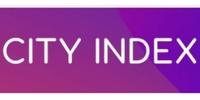
Markets
Platforms
Open Account
70% of retail investors lose money when trading CFDs with this provider
Notable Benefits
Reputable CFD brokers in Australia
While traders and investors from all walks of life understand the need of dealing with licenced and trustworthy providers, with so many CFD brokers on the market, they may be forgiven for feeling overwhelmed and bewildered when it comes to selecting a respectable brokerage. Traders’ requirements and needs will vary depending on their trading experience and objectives, which is why it’s critical to review what brokers have to offer and how to make the best use of the features and trading platforms provided; the comparison table above makes it simple to see what each CFD broker has to offer, along with their advantages and disadvantages. Let’s take a closer look at what to expect and how to ensure you’re trading with just the top CFD brokers.
Check Regulations
When it comes to selecting a reputable Contracts For Difference broker, the first critical factor to examine is regulation. It is critical that you avoid any broker who is not regulated. Regulated businesses are therefore subject to more tighter rules, ensuring traders receive the best possible bargain and preventing unscrupulous traders or unfair business practices from affecting others’ trading success.
For the majority of traders, selecting a CFD broker is a split-second decision, and as a result, the number of traders who soon become disappointed with the service they receive is enormous. To ensure that your search proceeds smoothly, it’s critical to remember to conduct a preliminary check for regulations in order to safeguard your money, personal data, and trading portfolio from undue, illicit influence.
Regulated brokers are permitted to conduct lawful transactional business in Australia, and given the nature of CFDs, traders are advised to seek for a broker who is registered with a competent regulatory authority in order to obtain the level of certainty and security required. We evaluate and review ONLY licenced CFD brokers to make trading and investing easier and to save traders and investors time on research.
Reputation
You would not trust your money to the first stranger you encounter on the street; instead, you would open an account with a respected bank; why would you not do the same with CFD trading? If you want to work with a reputable broker, you should investigate its reputation and what other traders have to say about it. Fortunately, we’ve done the job for you by scouring internet forums and review sites to ensure that we only include reliable CFD brokers; organisations with whom you may trade comfortably and have a positive trading experience.
Costs and Spreads
As with any other business, CFD brokers are in it to make money, which is why they charge their clients for each trade. To have a successful trading career, it is critical to understand what fees brokers charge and how to minimise them.
Spreads are the primary source of revenue for CFD brokers; spreads are the difference between the ask and bid prices. Because traders pay the spread each time they execute a trade, narrower spreads favour traders. Unless otherwise noted, brokers’ spreads are typically changeable and alter in response to underlying market conditions; we list only brokers with competitive spreads and transaction fees to ensure traders’ trading costs remain low.
Overnight financing (swap rate) is a cost traders pay their brokers for keeping their holdings overnight. Contracts For Difference (CFDs) are a leveraged instrument in which you essentially borrow money from your broker and pay interest each night for maintaining your positions. This price is often around the relevant interest rate benchmark +/-2.5 percent, and if you want to hold your positions for an extended period of time, this fee can significantly reduce your profits, prompting you to seek a swap-free account.
The days of hidden fees like as deposit and withdrawal charges or inactivity fees are over; nowadays, CFD providers strive to keep their fees as straightforward and transparent as possible.
Range of Markets
What makes CFDs so appealing is the breadth of markets available through a single account, which is why it’s critical to compare CFD brokers to ensure you can trade the markets you desire. The comparison table above details the markets that each broker offers; while all brokers offer the same basic markets (indices, stocks, FX, and commodities), the quantity of stocks and other markets can vary significantly, ranging from 1,000 to 20,000. Before opening a CFD account, verify that your broker offers the markets you wish to trade.
Accounts
Typically, CFD brokers will provide a variety of accounts to suit your trading style, experience, and volume. Ensure that you select the appropriate account for your trading needs, since this will save you time and confusion in the future.
If you’re unsure whether account is the best fit for you, it’s a good idea to phone them or contact them via live chat so they can assist you. This way, you can evaluate their customer service and ensure that you are opening the appropriate trading account; there is no shame in contacting customer support; they are there to assist you.
Australia’s Best CFD Trading Platforms
The CFD trading platform is an important tool that you should become familiar with and practise with to ensure that you understand how to place trades and orders. Some brokers will provide you a choice of well-known platforms to trade on, while others will provide you with a free trading system. It’s totally up to you which trading software you use, as various people like different platforms. However, it’s best if you begin trading on a platform you already know and understand, or spend some time learning how to use it effectively. You may always try out a method by signing up for a free demo account and then switching to a live account when you’re ready to trade.
User-Interface Design
Trading platforms have fairly similar looks, and most of the time if you know how to use one, you’ll be able to use another, so go with the one you enjoy the best. Every platform provides for modification, allowing you to fine-tune and tweak it to your liking.
Trading Tools
Every platform will have a set of trading tools available to users, but the range of tools available might vary greatly, so it’s critical to use the system with the tools you need to trade successfully. Most platforms will have economic calendars and announcements, as well as orders, charting software, indicators, and the ability to trade from graphs, among other things. That’s where the comparison table above comes in handy, as it shows you what trading tools are accessible on each platform as well as what additional free benefits brokers offer.
If you’re new to trading and are just getting started as a CFD trader, it’s crucial not to get overwhelmed by all of the tools available; just because your trading platform has some good tools doesn’t mean you have to utilise them all at the same time. Use the tools only when they’re needed; just because your charting software contains 100 indicators doesn’t imply you have to use them all on every trade.
Types of Orders
To control losses, every trader should employ orders, particularly stop loss orders. To avoid misunderstanding and irritation when running a live trade, make sure you understand how orders are placed before you begin trading. Some platforms will ask you to pick a price at which you want to leave the deal, while others may ask for the number of “points” away from the present price. It is entirely up to you whether or not to use orders; nevertheless, orders will save you time and help you control your emotions by removing the need to sit in front of a monitor watching every tick and panicking when a trade goes bad.
There Are Many CFD Brokers to Choose from in Australia
Trading with a reputed and licenced CFD broker is an irrefutable fact that will make your trading career lot more pleasurable and rewarding. That is why it is critical for traders to compare and research CFD trading platforms and providers to ensure they are getting the best deal possible; it may appear hard and time-consuming at first, but it will pay off in the long run.
The best CFD brokers offer a secure trading environment, dependable trading platforms, exceptional customer service, and competitive pricing. Don’t take chances with your broker selection; instead, trade with reliable CFD brokers you can trust.
Who is Australia’s best CFD broker?
It is entirely dependent on your trading needs, experience, and preferences, and only you, as a trader, can determine which CFD broker is best for you. However, your broker must be reliable and licenced.
Is it necessary for me to trade with a regulated broker?
You are free to trade with whichever CFD broker you like, but the rules are in place to protect you from unscrupulous and dishonest providers. Regulated brokers provide you with more peace of mind because they must adhere to certain regulations and rules.
Is it beneficial to have a larger number of CFD markets?
Not always; it all depends on the markets you wish to trade. Most traders only trade regularly traded markets, therefore having thousands of companies available on their trading platform is unnecessary.
What platform should I use to trade CFDs?
The finest CFD platform is one that has all of the features and tools you need to implement your trading methods and achieve your trading goals; trade on a platform you’re familiar with. Sometimes, you might have to make quick decisions or adjustments, that’s why you should know your trading software really well and react in a timely manner.
What about the fees of CFD trading?
The CFD market is saturated, and spreads are extremely low. The CFD brokers listed above offer some of Australia’s most competitive spreads and swap rates.




